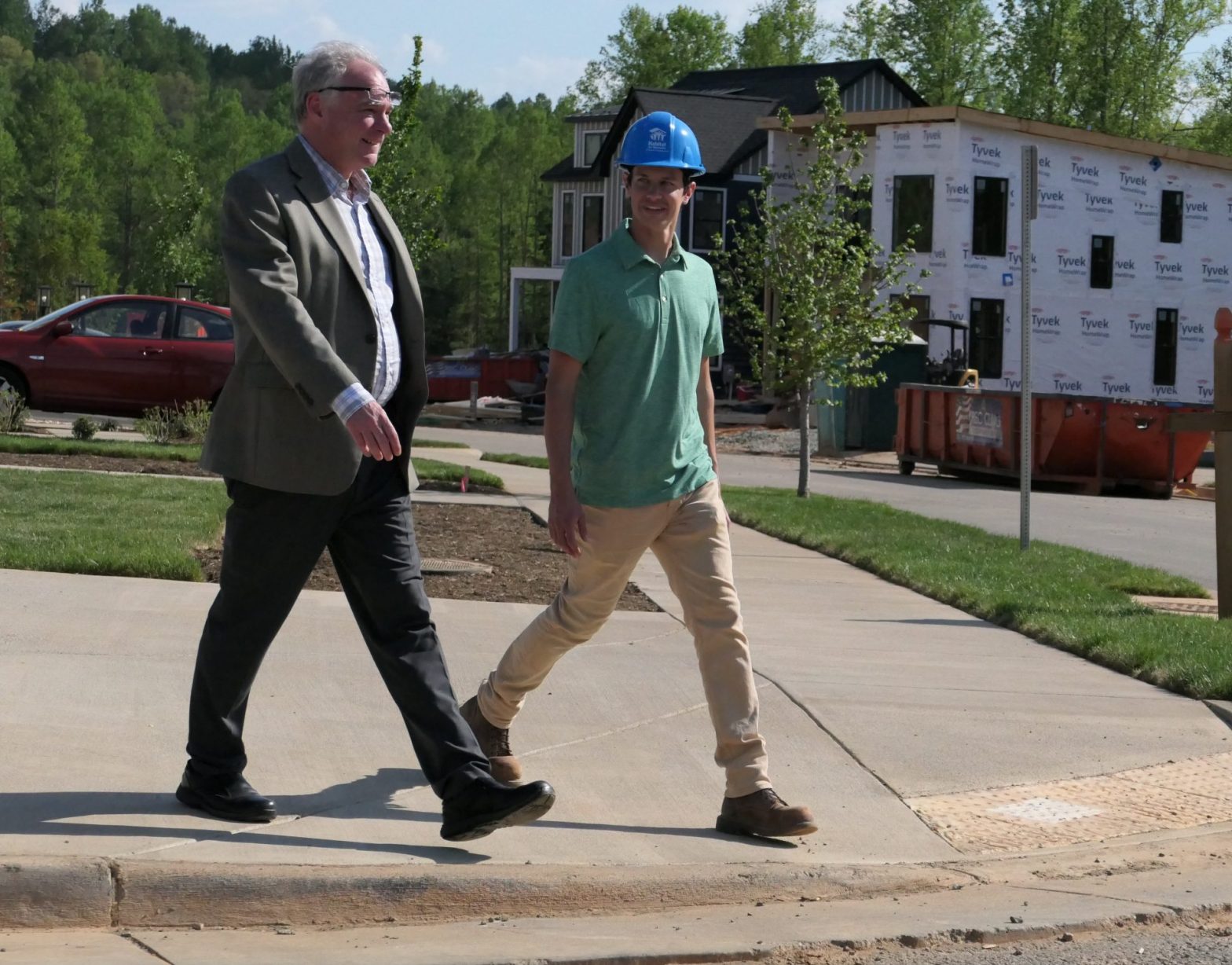Sen. Tim Kaine visited Southwood Mobile Home Park to tour the redevelopment site and meet with residents and Habitat for Humanity on April 21.
Located just south of Charlottesville, the Southwood community is home to more than 1,500 people, and spans over 100 acres. After experiencing extreme sewage problems and pressures from law enforcement, Southwood’s previous owner sold the property to Habitat for Humanity of Greater Charlottesville in 2007.
Since the purchase, Habitat has worked in collaboration with residents to redevelop the area with minimal displacement. By moving in phases, residents have been able to stay in their homes during the development.
Amid the ongoing construction, the neighborhood continues to thrive. The renovated Boys & Girls Club sits at the heart of the community, and multiple residents run businesses from their trailers and in the green area surrounding the mobile home park. Many families have lived at Southwood for decades; even temporarily relocating residents outside of the park would disrupt their lives and the community.
“It’s almost never the same people who come back, who got displaced, “ Kaine said while touring Phase I of the construction. The senator praised the redevelopment process at Southwood: “The model here is in this sizable project, to do it in phases, where you never have to displace anyone.”
Housing has been a major focus of Kaine’s political agenda since the beginning of his career. As a former fair housing attorney, Kaine has decades of experience in the field, and is a longtime champion of affordable housing. At Southwood, the senator was able to see direct results of his housing policies and hard-won federal funding.
During his visit, Kaine spoke with residents and Habitat for Humanity leaders in Spanish and English. One Southwood resident, a leader in the development, met with Kaine at the entryway to her nearly completed new home. Tearfully, she spoke about how the project has allowed her and her family the opportunity to obtain their dreams of homeownership.
“The most impressive thing is talking to the residents about the way they have tried to design this and then work with the county officials to make it happen,” Kaine said. “Again and again they were talking about ‘sueños’: You have enabled us to achieve our dreams.”
Habitat for Humanity’s work at Southwood is remarkable for its model of redevelopment. Instead of a traditional path, which presents a plan to the city with minimal community input, Southwood’s residents have been deeply involved in their neighborhood’s improvement since the beginning. The resident-led model of redevelopment demonstrates the potential of non-traditional housing projects.
Unlike a majority of affordable housing projects, Habitat for Humanity is focusing on constructing houses rather than apartments at Southwood. This has allowed residents to select the design of their homes, and provides an accessible pathway to homeownership.
Kaine said it was this unique emphasis on homeownership that drove his visit as he works on another housing bill in the Senate. There are a multitude of state and federally subsidized apartment programs, but a lack of affordable housing efforts that provide a road to ownership.
Locally, rising home prices and a major lack of affordable housing has created a housing crisis. While the city and county have taken steps to improve the situation, a lack of appropriations continues to undermine efforts. Despite the pressing need for affordable housing and resources for lower income residents, projects like the Pathways Community Resource Helpline have run out of funding (see p. 11).
Beyond Charlottesville, housing is a major issue in Virginia and the United States. “As I was traveling around Virginia 10 years ago, housing would be in the top 10 issues, but not the top five,” Kaine said. “As I travel around Virginia now, housing is almost always in the top three.”
“I think what’s [going to] be an example about this project for others is this resident-led design,” Kaine said. “And the fact that the county officials were willing … to go with that, and learn and do it.”
Although Southwood’s circumstances are unique, Kaine believes the neighborhood highlights the merit and importance of community driven and responsive redevelopment. “I think other counties and cities can do the same thing.”
